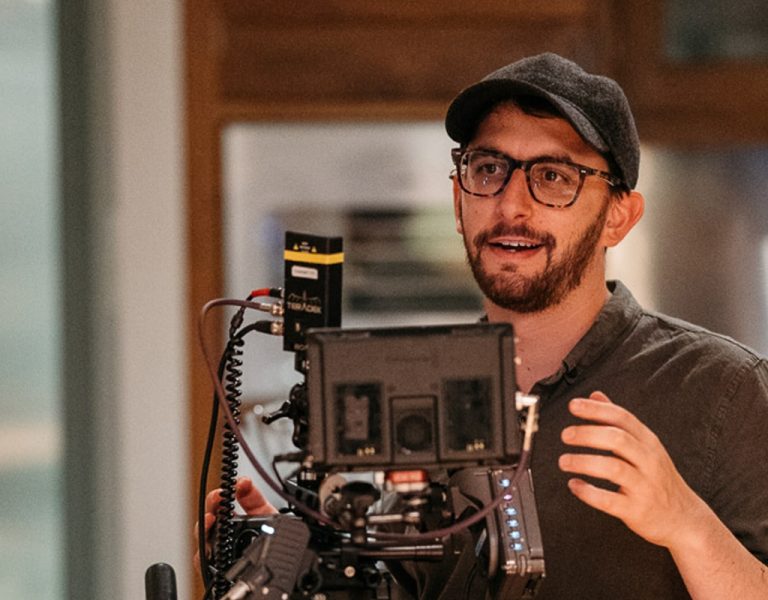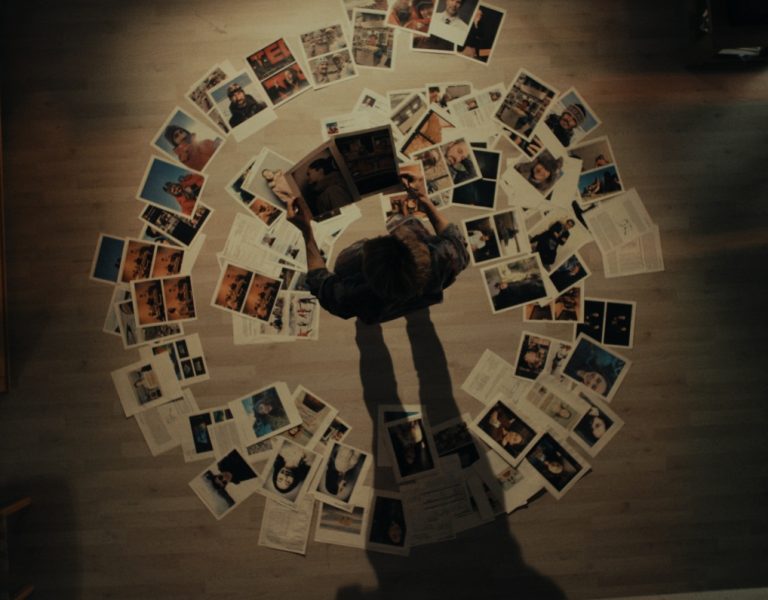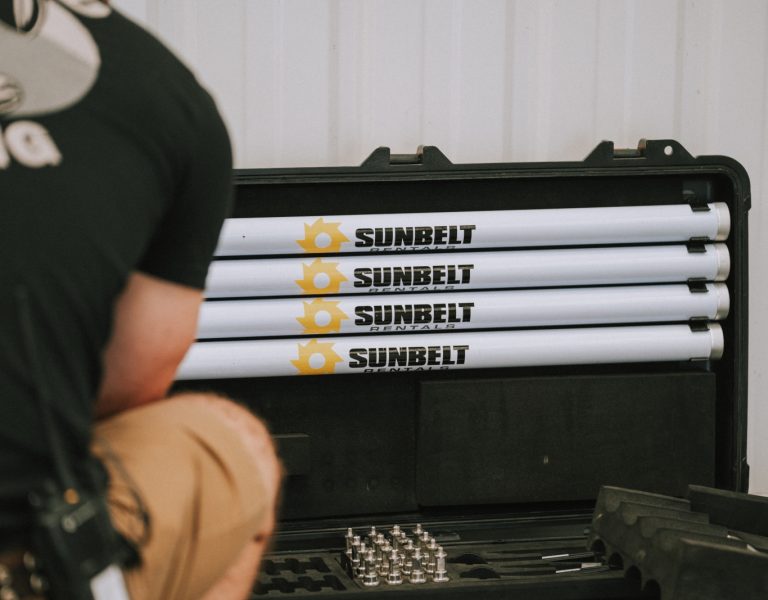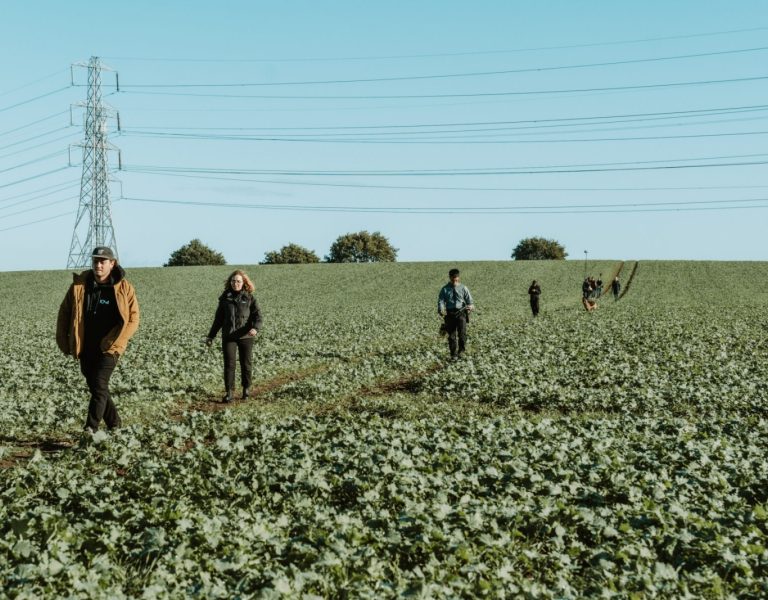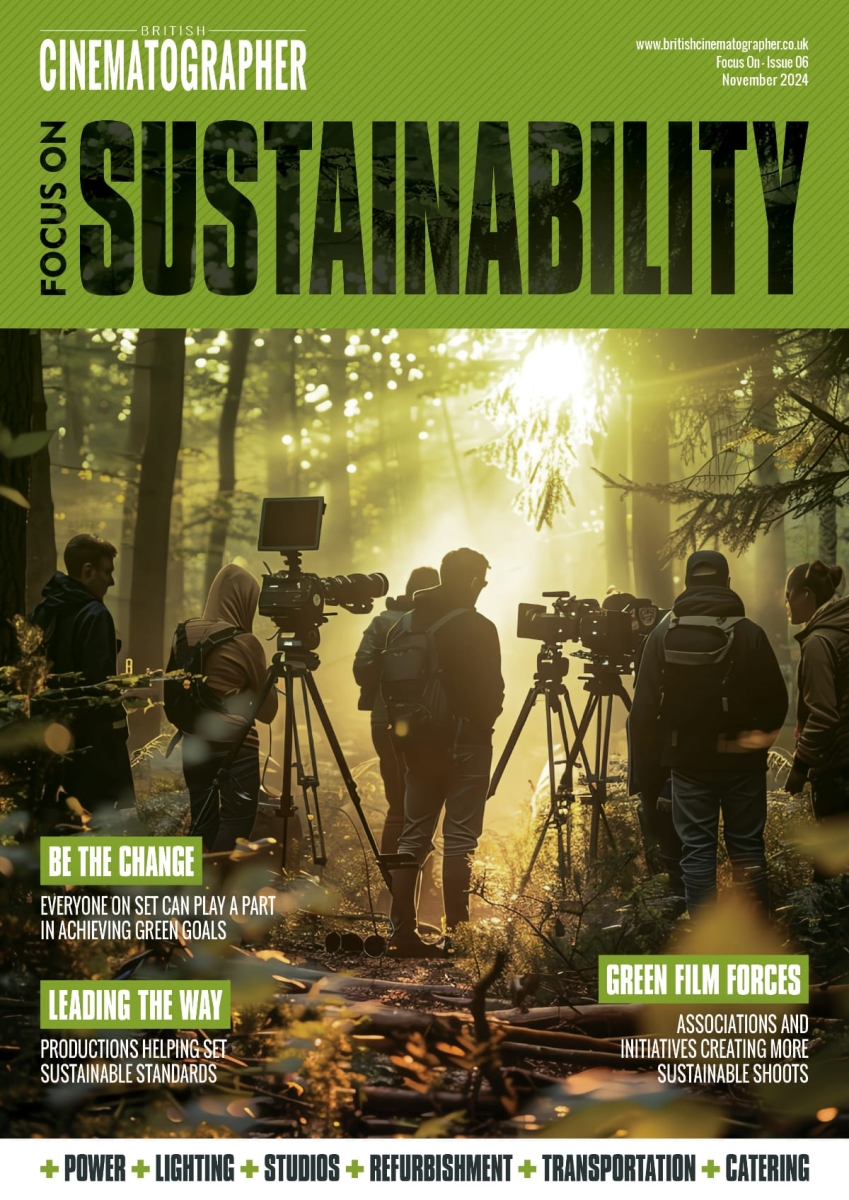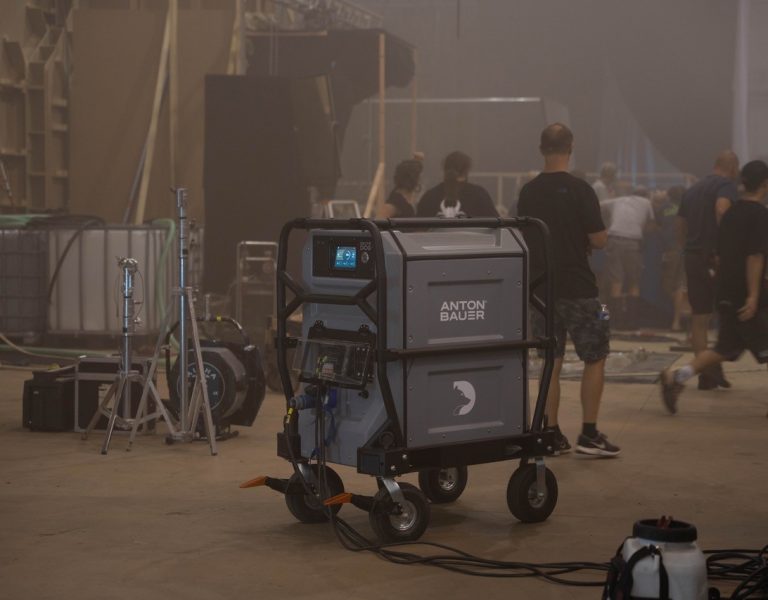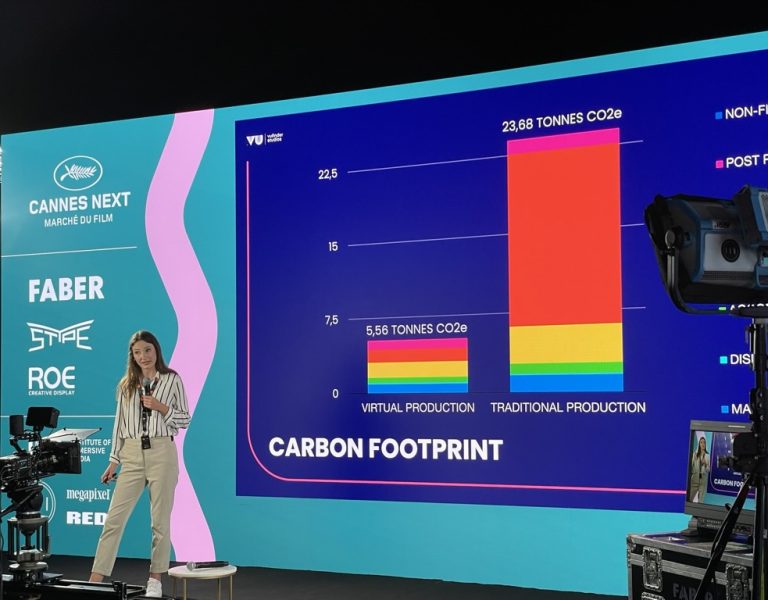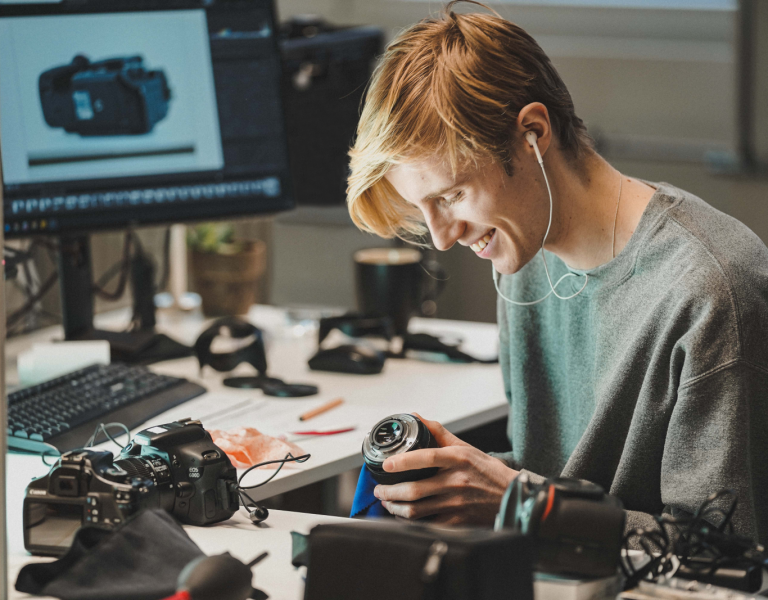Despite tightened budgets and production challenges, a growing number of studio facilities across the world are committed to addressing the global climate crisis.
Victoria Stokes, sustainable production manager for albert, manages the Studio Sustainability Standard, a voluntary initiative launched in 2022 to help studios reduce their environmental impact. “Studios play an important role in decarbonising the screen industries,” says Stokes. “They can determine access to sustainable infrastructure and set the tone for a production’s sustainable approach to creating content.”
London’s RD Studios, with five sound stages covering over 45,000 ft², is equipped with solar panels, electric vehicle charging stations, rainwater harvesting systems, a green wall, carbon-absorbing paint, sensor-triggered LED lighting – and has removed single-use plastics. As well as its own on-site gaffer/rigger, the studio has a lightweight automated truss and acoustic curtains in the studios to save time (and reduce traffic movement) when rigging/derigging. “We work hard to support our clients and recycle and repurpose more,” says Stephanie Hartog, MD of RD Studios. “We have sustainability policies in place for operations and a sustainable procurement policy; we are signed up to Green energy suppliers on top of our own supply from the solar panels. We’ve added locally based suppliers to our studio partner list and are building up our own list of sustainable suppliers and freelancers based nearby.”
RD Studios joined a local WhatsApp group and a charity platform to rehome leftover items from shoots and contribute to the circular economy. Stokes highlights other studios taking similar measures, such as Aria Studio Wales and 3 Mills, which donate props and sets to local community projects. Garden Studios runs a program called Re-Set to reduce waste and repurpose sets. Meanwhile, Bristol’s The Bottle Yard Studios, owned by the city council, has implemented several green and community initiatives. The studio has replaced existing lighting with LEDs, increased insulation (for heat and sound), and introduced low-carbon heating solutions. Its purpose-built energy-efficient TBY2 facility is powered entirely by more than 2,300 PV panels and a sophisticated building management system controls built-in heating, cooling and ventilation in all stages.
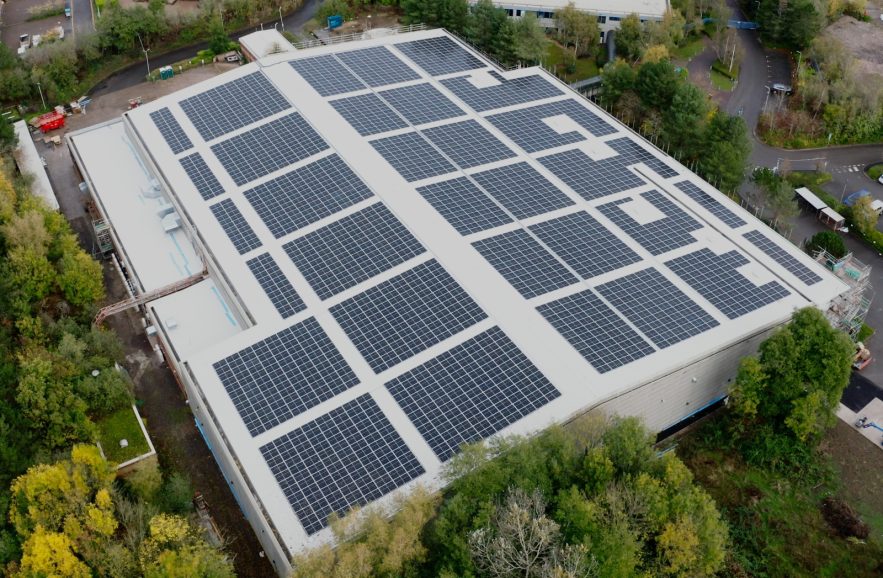
“Following the success of the community-owned 1MWp solar rooftop array at our TBY2 facility, we are continuing to explore possibilities for PV installation at our main site as well as installing an electrified unit base supply as an alternative to generator use,” says Katherine Nash, business operations manager and sustainability lead, The Bottle Yard Studios.
The company has also joined the KIT4CREW initiative devised by Real SFX. “We are focusing on developing a more robust waste management strategy to help productions design for end-of-life and repurpose materials locally,” adds Nash.
Vancouver Film Studios has implemented measures like solar power, electric generators, community support and engagement, and a pollinator friendly environment across its 13 soundstages. “Sustainable options are becoming more cost effective and can have long term cost savings,” says Samantha Montgomery, impact manager at Vancouver Film Studios who points to the example of one preferred vendor, Reusables, which services productions by cleaning and replacing reusable containers each day. “While at first it might seem like a larger expense than just buying disposables, we have seen productions save money over the course of the show, and the environmental impact of this small change is huge!”
New from old
Sustainability is not restricted to thinking about new build facilities and supply chains. As much as 50% of the carbon impact of the entire lifetime impact of a building is in its construction and demolition, so by turning an old site into a studio reduces such ‘embodied’ greenhouse gas emissions.
The Bottle Yard’s main site is a repurposed winery and bottling plant. FirstStage Studios in Edinburgh transformed a defunct wave power plant into a 115,000 ft² shooting space, and provides 100% of its own power (as well as extensive recycling and insect-friendly green spaces, all the sets are built and decorated by local crew). Glasgow’s iconic Kelvin Hall was repurposed into a multi-genre studio by BBC Studioworks, co-funded by the Scottish Government, and has a 10,500 sq. ft footprint allowing for sizeable sound and lighting galleries. “Sustainability was really at the core of the design of Kelvin Hall Studio,” says studio manager Stuart Guinea. “For example, we’re using air source heat pumps for our heating and cooling. Every bit of lighting in the building, be that production lighting or just office lighting, is LED. The whole building is controlled via a building management system, which can adapt to outside temperatures. We also have multiple waste recycling workstreams.”
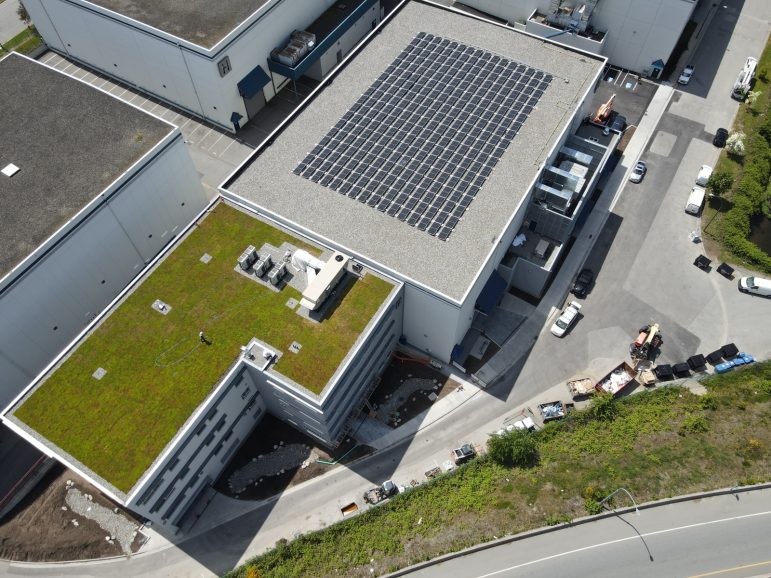
Certify yourself
Certifications play a crucial role in driving sustainability efforts. Vancouver Film Studios has been B Corp Certified since 2021. “Being a B Corp has opened us to a community of purpose-driven companies,” says Montgomery. The studio is also Climate Smart certified, allowing it to track and offset its greenhouse gas emissions, and signatory to The Pact for Sustainable Action.
Stokes notes a marked increase in the number of studios participating in albert’s Studio Sustainability Standard. “In the first year, 12 studios took part, jumping to 29 in the second year,” she says. “This is a positive reflection of how more and more studios are taking sustainability seriously. All studios globally should prioritise implementing decarbonisation strategies.”
The Standard looks beyond carbon reporting, examining how studios approach sustainability in areas like circularity, nature, people, and governance.
“Our premium TBY2 facility was one of just two studios to achieve Outstanding, the highest rating awarded by the 2024 BAFTA albert/Arup Studio Sustainability Standard,” says Nash. “Our main site was rated Very Good. Both sites scored particularly well in the categories of Circularity, Management and People.
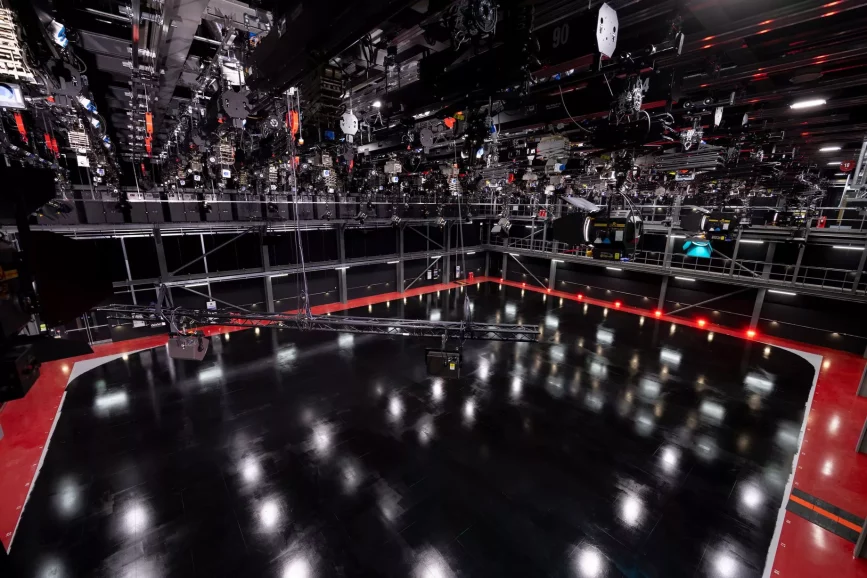
“We are albert-accredited and rated Very Good which we are very happy about and have set ourselves the goal of improving that this year,” says Hartog. “We work to support clients working with Ad Green as well; we have lots of supportive information to help our clients’ reporting needs for both these areas. We are always looking round for new initiatives in this area which will help our clients’ business.”
“One of the first questions clients ask is about our sustainability policy,” says Guinea of Kelvin Hall Studio. “They may have policies they want us to adhere to, which we are more than happy to accommodate.”
“Our clients are supportive and understand our goals,” says Hartog. “We encourage our clients to maximise their recycling and support them in achieving this.
“We also talk to clients about energy use and how to balance their financial needs with the lighting they need. The business as a whole is moving away from the energy sapping tungstens of yesteryear!”
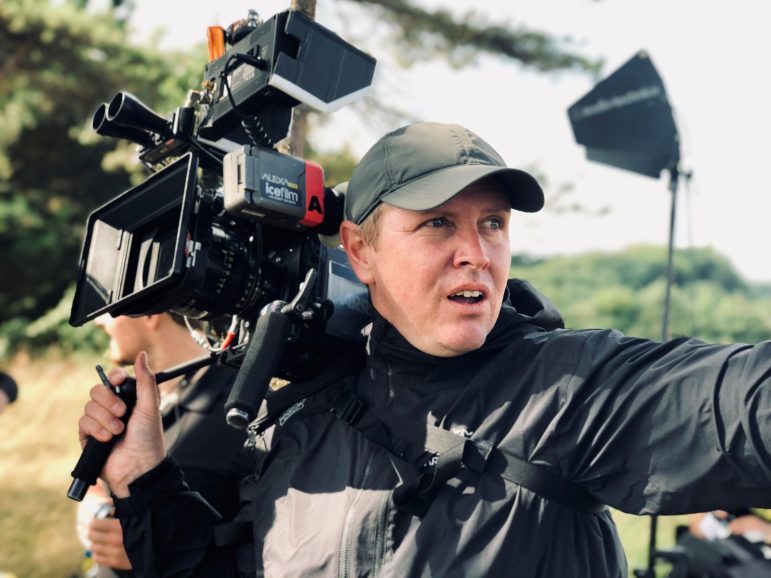
Cinematographers Mattias Nyberg BSC and David Raedeker BSC are also in favour of a shift away from traditional emissions-heavy power and lighting, favouring LED over tungsten, and battery power and hybrid generators where possible.
Nyberg ‘s current project, The Girlfriend (Amazon/MGM) takes a particularly sustainable approach to lighting, aided by gaffer Seth Crosby. “All of the generators on our shoot run on certified palm oil free HVO which in itself cuts about 80% of the generator’s CO2 emissions compared to using traditional diesel,” says Nyberg.
Both cinematographers advocate for sustainable practices on every production, from public or electric transport to vegetarian/vegan catering options. Nyberg praises Sky’s efforts to shoot sustainably with a fully electric transport fleet and singles out Karl Liegis at 60Forty Productions and Film London’s Laurence Johnson for driving positive change. Raedeker, although believing the film industry to be too conservative and often “paying lip service” to green measures, highlights studios like The Bottle Yard as examples of how things can be run differently, successfully, and more sustainably. He suggests linking sustainability to funding, like tax relief, to incentivise greener practices.
Nyberg, chair of the BSC Sustainability Committee, advocates for a mandatory budget line for sustainability, similar to the 10% line introduced during the pandemic. “Climate change will not only have a devastating effect on our lives at home, but also it will risk wrecking our business,” he adds. “Erratic weather will make insuring a shoot incredibly expensive. It’s not only morally the right thing to do, but also it makes business sense for studios to invest in preventing the worst effects of climate change.”
–
Words: Michael Burns









